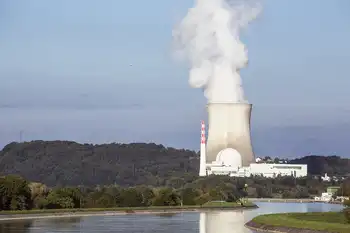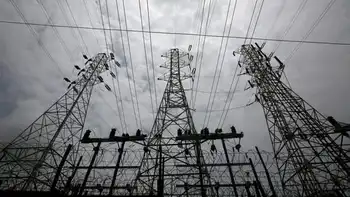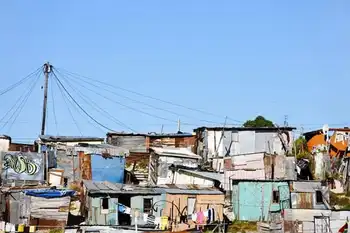Iran pressured into tougher nuclear inspections
Vienna -- - The head of the UN nuclear agency has pushed Iran to allow more intrusive inspections of its nuclear-related facilities to ease concerns that it is developing atomic weapons.
Mohamed ElBaradei's appeal before the board of the International Atomic Energy Agency came after an internal report claimed Iran failed to honour promises to disclose its use of nuclear material. The United States wants the agency to declare Iran in violation of the Nuclear Nonproliferation Treaty.
ElBaradei asked Iran to accept a new protocol that will give the agency a chance to "provide credible assurances regarding the peaceful nature of its nuclear activities."
"I also continue to call on Iran to permit us to take environmental samples at the particular location where allegations about enrichment activities exist," ElBaradei said. "This is clearly in the interest of both the agency and Iran."
Iran insists its nuclear program is peaceful and aimed at producing electricity for energy needs as oil supplies decline.
The meeting of the 35-nation board is expected to last several days.
Suspicion about Iran's program prompted ElBaradei to tour Iran's nuclear facilities in February.
A copy of the report that followed, obtained by The Associated Press, revealed Iran was building a heavy water production plant. Heavy water is used in nuclear power plants and can be used to produce plutonium for weapons.
The report also indicated that Iran failed to declare the importation of a small amount of nuclear material and its subsequent processing to a point short of that needed for an explosive device.
The U.S. ambassador to the agency, Kenneth Brill, described it as ``a very serious and sobering report and we have to deal with it."
The European Union's foreign ministers echoed ElBaradei's position and called for Tehran to allow expanded inspections.
Iran's chief representative to the IAEA, Ali Akbar Salehi told reporters before the meeting that "this whole issue has been politically motivated and politically charged."
One of the more critical players in the debate is Russia, which is helping build a 1,000-megawatt light-water reactor in the Iranian southern port city of Bushehr, reportedly worth $800 million.
Viktor Kozlov, the head of Russia's state-run Atomstroiexport company, which is in charge of the reactor's construction, said that 3,900 Russian and Iranian workers were building the reactor. Russian Nuclear Power Minister Alexander Rumyantsev said last month that the Bushehr reactor was set to become operational in 2005.
Moscow has strongly urged Iran to sign an additional agreement with the IAEA that would put all its nuclear facilities under the agency's control. The government has said that Russia will still ship nuclear fuel to Bushehr even if that push fails, provided that Iran agrees to return all spent fuel to Russia.
"We hope that our point of view is heard in Iran," said Moscow's ambassador to the IAEA, Grigory Berdennikov. "We are working with Iran so that it would sign and ratify the additional protocol."
The meeting comes at a time of growing concern for the control of nuclear material worldwide.
With reports that Iran may be trying to develop a nuclear arsenal, along with worries about North Korea, experts are questioning whether it's really possible to stop countries — let alone terrorists — from acquiring such weapons.
There are fears that the nonproliferation treaty itself may be falling apart.
Under the accord, the United States, China, France, Russia and Britain — the declared nuclear powers of the 1960s — attempted to stop the spread of weapons. They agreed to reduce their arsenals and ensure that nuclear technology was used for peaceful purposes.
But the treaty has failed to discourage other nations — such as India and Pakistan — from developing nuclear weapons. Israel is widely believed to have nuclear arms, though it is unconfirmed. North Korea is also suspected of developing nuclear weapons.
In comments on North Korea, ElBaradei said he could provide no assurances about the "non-diversion of nuclear material for weapons or other explosive devices." Pyongyang expelled agency experts from the country late last year.
Related News

Changes Coming For Ontario Electricity Consumers
TORONTO - By David Stevens, Aird & Berlis LLP
Electricity consumers in Ontario may see a couple of changes in their electricity bills in the coming months.
First, as we have already discussed, as of November 1, 2020, regulated price plan customers will have the option to switch to "tiered pricing" instead of time-of-use (TOU) pricing. Those who switch to "tiered pricing" will see changes in their electricity bills.
The Ontario Energy Board (OEB) has now issued final amendments to the Standard Supply Service Code to support the customer election process necessary to switch from TOU pricing to tiered pricing. The main change from…




